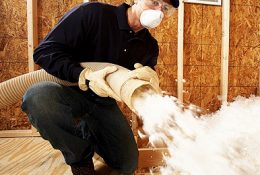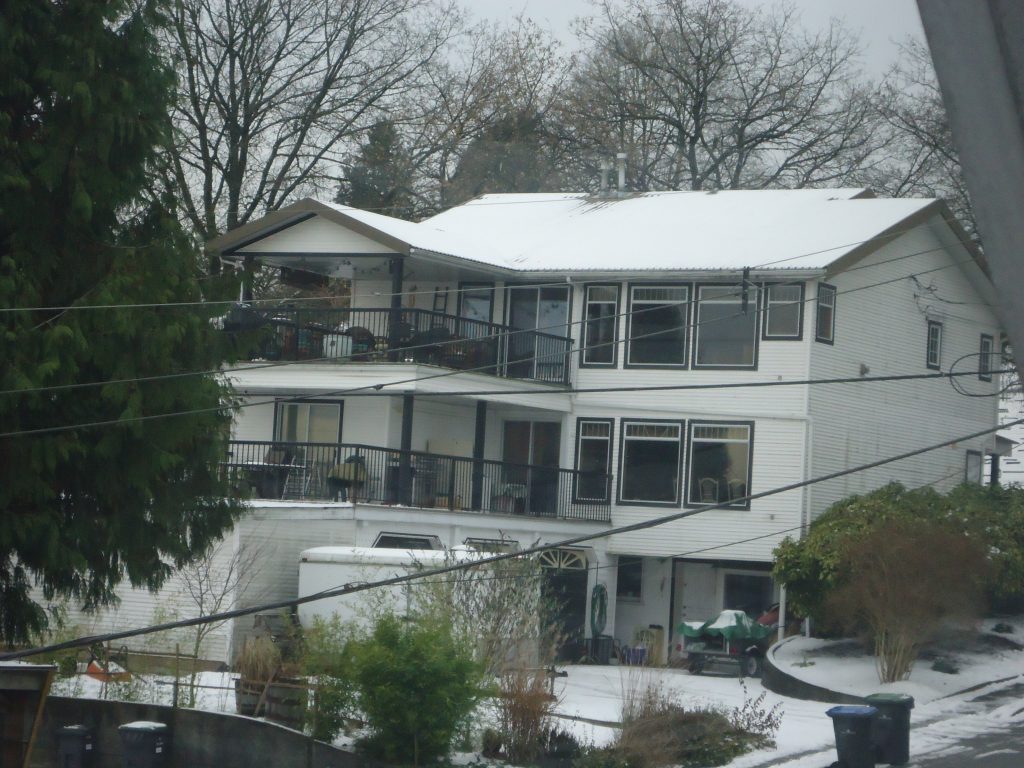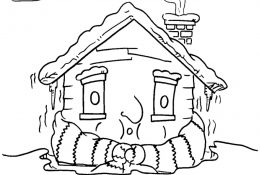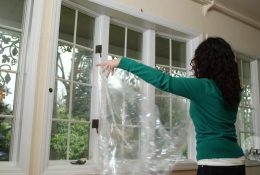Look at this infra-red image of a typical home. All the red and yellow areas are signs that your heating bill is going to go up, way up! So how can a home owner stay warm and save money?
-
 INSULATION
INSULATION
Heat loss through walls and attics can be reduced using cavity insulation. This involves blowing insulating material into the gap between the interior and exterior walls. -
 DOUBLE PANED WINDOWS
DOUBLE PANED WINDOWS
Single paned windows are highly inefficient and keep your home chilly and uncomfortable. Upgrading to double paned windows will substantially reduce your heating bill savings and over time these energy efficient windows will likely pay for themselves. - WINDOW CAULK & FILM
If you can’t afford to upgrade to double pane windows. A more cost-effective solution is caulk the window frame and cover with window film. Caulking around windows blocks air leaks. Window film is affordable and easy to install, creating a sealing that can reduce heat loss by 50 percent. - WEATHER STRIPPING
As far as drafty doors go, weather stripping can be a relatively inexpensive DIY option. All you need is a pair of scissors, some fabric, a sewing kit, a funnel, some filling, like rice or kitty litter and a little practice. - UNBLOCK VENTS
Keep heating vents clear by moving away objects such as rugs and furniture which block the vent and prevent heated air from circulating efficiently. Return air registers also need to be kept clear. - FURNACE / DUCT INSPECTION
Have your furnace and duct work inspected for potential heat loss issues. (Un-insulated ductwork which winds it way through a cold attic or crawl space can lose up to 60% of its heat before it reaches the vent outlet.) -
 PROGRAMMABLE THERMOSTAT
PROGRAMMABLE THERMOSTAT
Installing a programmable thermostat, which automatically lowers the temperature at night and when you’re away, can further reduce your heating bill by up to 33%.
ROOF INSULATION COMPARISON
Here are a couple of good photos to further highlight heat-loss. The first one contrasts an old home with lots of snow-melt, with a brand-new home (less than 1 year-old) with similar.
The second one shows an older home with LOTS of attic insulation and VOILA (very little snow-melt at all). Note: photos were taken in same neighbourhood at the same time.


Duxbury & Associates – Uncovering Tomorrow’s Surprises, TODAY! Ph: 604 524-2502
.
For more information on insulating your home, view the CMHC Website
.




